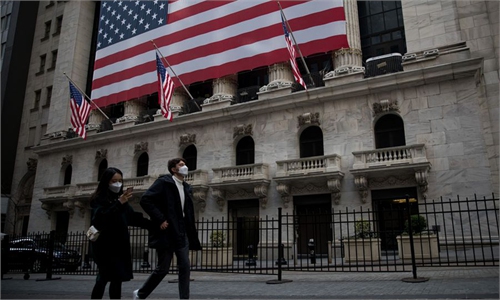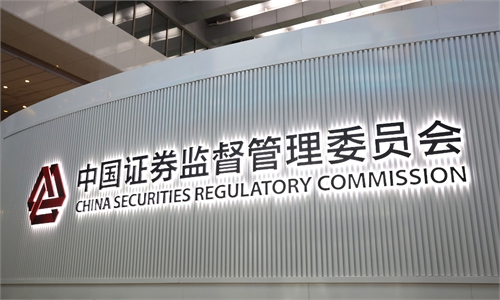
Illustration: Xia Qing/Global Times
US regulators have notified Chinese e-commerce giant Alibaba Group Holding, JD.com Inc and other US-listed Chinese companies for audit inspections starting next month, Reuters reported on Wednesday, citing three sources familiar with the matter.If the report is true, this will be the first action taken by US authorities against US-listed Chinese firms since Chinese and US regulators signed an audit oversight cooperation agreement on Friday. Such a move would certainly create more market anxiety, as evidenced by the sharp losses in Alibaba share prices following the report. The market is evidently very sensitive to such US regulatory actions against Chinese firms.
The China-US audit agreement has established the principle of reciprocity for audit cooperation between Chinese and US securities regulatory agencies, and clarified the scope and mode of future implementation. It is widely seen as an important step toward solving a long-standing issue citied by the US to threaten to delist more than 200 Chinese companies from US stock exchanges.
However, it must be pointed out that the agreement is based on the principle of equality and reciprocity. No party is making unnecessary concessions or has more power than the other. Also, the US audit regulations are formed for all foreign companies listed in the US, despite its widely perceived focus on Chinese firms. Therefore, the US should treat Chinese companies fairly, strictly adhere to the principle of the agreement, and refrain from creating new problems for Chinese firms.
Since the US' Holding Foreign Companies Accountable Act was signed into law by former US president Donald Trump at the end of 2020 and took effect in 2021, the US has been using a so-called "pre-delisting" list to threaten Chinese companies, hammering these companies' share prices.
Under the political threat from the US, an increasing number of Chinese companies are choosing secondary listings in Hong Kong or other capital markets. The latest example is the voluntary delisting of five Chinese state-owned enterprises from the US in August.
Alibaba, as the US-listed Chinese stock with the highest market value, has been put into the "pre-delisting" list by the US Securities and Exchange Commission in July. The company in late July announced that it is pursuing primary listing on the Hong Kong Stock Exchange and will become dual-primary listed in the US and Hong Kong after completion.
For the US, keeping quality Chinese companies listed in the US is beneficial to investors and US bourses. The new agreement is a win-win arrangement. This can be seen from the market reaction after the signing of the agreement.
The delisting risk for US-listed Chinese stocks nearly halves after regulators reach audit agreement, Goldman Sachs analysts said on Monday, down from 95 percent in mid-March - the highest on record going back to January 2020, according to CNBC.
Nasdaq hopes that Chinese companies will continue to keep their close relations with the Nasdaq. The bourse welcomes more Chinese firms, said Robert H. McCooey, the vice chairman of the New York-based stock exchange, according to the Securities Times.
As the first case after the China-US audit cooperation deal, the US' handling of the vetting of the firms' audit has a demonstrative role for further audit cooperation between China and the US. It should be noted that the US side should carry out the vetting in a fair manner and avoid coming up with new additional conditions specifically targeting China.
The China-US audit cooperation agreement has not completely eliminated the risk of financial decoupling. There are still radical US politicians that clamor for tougher rules for Chinese companies listed in the US. Some US propaganda arms also criticized the new audit cooperation agreement.
The current risk of financial decoupling between China and the US stems from the politicization of financial cooperation by the US. It is hoped the US can stop using the geopolitical lens in inspection of Alibaba and other US-listed Chinese firms and take practical actions to repair US-China financial cooperation.
The author is a reporter with the Global Times. bizopinion@globaltimes.com.cn



